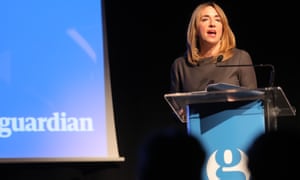Weekly News 17
Katharine Viner: in turbulent times, we need good journalism more than ever
https://www.theguardian.com/media/2017/nov/16/katharine-viner-we-need-public-interest-journalism-in-turbulent-digital-age
Key Data/ Statistical Info
- Facebook has become the most powerful publisher in history by replacing editors with algorithms and has divided public debate in a way that challenges democracy, Katharine Viner, the editor-in-chief of the Guardian, has said.
- “Championing the public interest and the continued freedom of the press – which has always been at the heart of the Guardian’s mission – has become an urgent necessity,”
- “Our digital town squares are mobbed with bullies, misogynists and racists, who have brought a new kind of hysteria to public debate. Our movements and feelings are constantly monitored, because surveillance is the business model of the digital age,”
- Viner said the digital journalism produced by many news organisations had become “less and less meaningful” because the bulk of online advertising now went to Google and Facebook.
- The Guardian is now funded by more than 800,000 supporters from more than 140 countries, and is read by more people than ever before.
- “If people long to create a better world, then we must use our platform to nurture imagination – hopeful ideas, fresh alternatives, belief that the way things are isn’t the way things need to be
The article talks about the importance of "good journalism" amongst news organisations, and states that it is especially important in today's society. Katherine Viner, the chief editor of the Guardian says that the "bulk of online advertising" digital journalism produced by news organisations has become "less and less meaningful". This is especially due to most online advertising done by major institutions such as Google and Facebook. Although it is unfair to blame Google and Facebook for posting ads of specific news organisations, because they're configured through algorithms, it is understandable that news organisations are struggling due to this. This results in good quality investigative journalism being sidetracked, which means that new information on controversial stories may not even be seen by a majority of the public. Furthermore, the article states that the "Guardian is funded by more that 800,000 supporters" which suggests that a majority of people are understanding the importance of good journalism and are investing in news organisations that provide them to a global demographic. This also touches upon the debate of paywalls, as more and more organisations struggle to make money by keeping their content free. However, given the fact that newspapers require that money to provide "good journalism"to the public, it certainly encourages more people, especially a younger demographic ,to invest such organisations, especially in an age where almost anything can be classified as "news".

Comments
Post a Comment